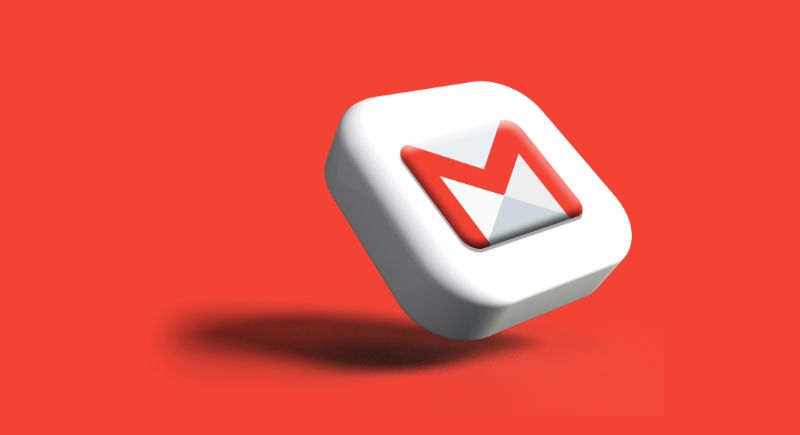How Your Email Address Might Be Screaming “Boomer”
For Gen Z, judging someone by their email address is practical. They don’t need your birthdate to know you’re clinging to tech habits from two decades ago. All it takes is a look at what comes after the “@.” If it says AOL, Yahoo, or Hotmail, good luck getting taken seriously. If it’s your full name at Gmail, you might get a raised eyebrow and a quiet mental note that you’re ancient.
While boomers and many millennials secured simple Gmail usernames back when it was invite-only, zoomers grew up with Gmail as a default. By the time they tried to register, every version of their real name was taken. So they added dots, middle initials, underscores, and numbers. Some went straight to using private domains or encrypted services like ProtonMail. To them, an email like mary.smith@gmail.com feels unattainable and almost sacred. Or worse, suspiciously vintage.
The Real-World Chaos of Boomer Email Habits
A Reddit user once shared their experience getting mistaken for Boomers across the globe. They owned a clean firstname.lastname@gmail.com address and got emails meant for strangers in Atlanta, Auckland, and Birmingham. Every day, their inbox was filled with tax forms, hospital bills, job contracts, and family group plans. One man even FaceTimed them by mistake. The boomer had likely been giving out the wrong email for years.
It wasn’t an isolated event. Dozens of similar complaints show up in forums, tech help threads, and customer service rants. A chunk of Boomers still think emails are unique to them, like a phone number or mailing address. They give out an address that matches their name and assume it belongs to them, even if they never opened such an account. If it bounces, they shrug. If it reaches someone else, they’re baffled.
This behavior can create security problems. Emails meant for banks, lawyers, or medical offices sometimes end up with the wrong person. One mistaken email included legal documents from a law firm. Another involved a housing dispute with confidential attachments. Once it’s in the wrong hands, it’s hard to fix. You can’t revoke an email the same way you can replace a password. And the person receiving it can’t stop it either.
Stuck With Gmail and Afraid to Move

Image via Unsplash/Rubaitul Azad
ISP-based email addresses add another layer to the generational split. If you’ve got an email ending in @verizon.net, @comcast.net, or something obscure like @bellsouth.net, it often signals that you’ve been online since dial-up. These accounts were once assigned through internet providers, and many people never updated them. The issue is portability. When you switch providers, you often lose access. Or, like in Australia during the 2021 heatwave, the entire email server goes offline, and no one can log in. Yet some still hang on to them like they’re heirlooms.
An infamous example involved a retired journalist in Sydney. His @ozemail.com.au account stopped working for several days due to a data center failure. He vented publicly about losing access to vital emails. That domain, long ago absorbed into another company, hadn’t been relevant since 2005. But he was still paying an annual fee to keep it active. Many younger users were shocked to discover people still rented legacy email addresses. They saw it as a stubborn refusal to update.
However, not all “boomer email energy” is limited to ISP holdovers. Gmail itself is no longer immune. It’s safe and dependable, but boring. Gen Z has started to see Gmail the way millennials once viewed Yahoo—functional, but out of touch.
This shift in perception has created a strange reversal. When Gmail first launched in 2004, it gave millennials a second chance after years of Hotmail usernames filled with numbers and inside jokes. It offered space, speed, and professionalism. For many, it became the official address for resumes, taxes, and adult life. Now, years later, they haven’t changed it. That decision makes them easy to spot.
Digital Identity and the New Email Divide

Image via FreePik/pikisuperstar
Younger users, in contrast, are starting with fresh tools. They use custom domains or prefer services like Hey or ProtonMail. A few still set up Gmails but use throwaway names or alternate spellings. They’re not worried about sounding professional in the same way older generations were. For zoomers, having an ironic or low-effort username feels more authentic than a polished one. It shows you aren’t trying too hard. In tech culture, trying too hard is worse than being sloppy.
The Gmail generation that signed up when it required an invite has now crossed into legacy territory. They were once early adopters. Now, they’re locked in, unable or unwilling to migrate their inboxes. Calendars, logins, cloud files, and two-factor authentication are all tied to a single email address that hasn’t changed since 2006. Switching feels like moving house during a blizzard.
For zoomers, this commitment to one email platform feels absurd. They treat emails like usernames on apps: easy to change, easy to discard. The idea of holding one address forever seems outdated. They rotate between inboxes, forward what matters, and let the rest go. If something crashes, they move on.
This difference in approach reveals how each generation views digital identity. Boomers and many millennials built stable tech homes. Zoomers rent theirs month to month—not in literal cost but in mindset. Email, to them, is a tool, not a fixed identity. That’s why seeing someone still proudly using a 2004 Gmail handle feels like watching someone write checks at the grocery store.
Your Inbox Might Be Aging You

Image via Unsplash/Emily Powers
If someone reacts strangely to your email address, it might not be personal. It might be generational. And if you’re still getting emails meant for strangers because their names match yours, you’re not alone. You’re probably receiving their mortgage details because they assumed firstname.lastname@gmail.com was theirs to claim. Spoiler: it wasn’t.